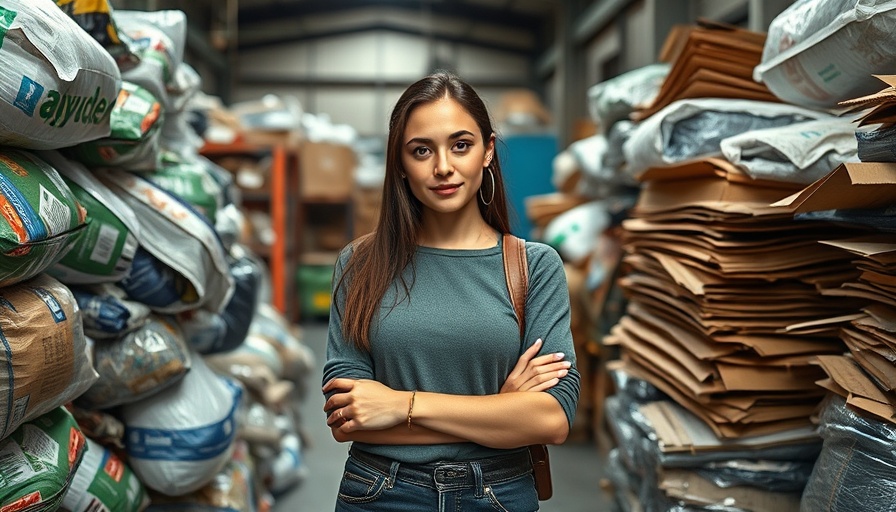
Rethinking Waste in Indonesia's Circular Economy
In a world facing escalating waste management challenges, Cynthia Handriani Wijaya, the Chief Corporate Officer of Daya Selaras Group, illustrates a powerful paradigm shift in thinking about waste. Emerging from the COVID-19 pandemic, when discarded face masks and delivery packaging overburdened waste systems throughout Southeast Asia, she recognized an opportunity to rethink the treatment of waste as a valuable commodity.
Transforming a Family Legacy
Under Cynthia's leadership, the family-owned Daya Selaras Group transitioned from a traditional corrugated carton manufacturer to a pacesetter in Indonesia's circular economy. Her journey began with a profound realization: “We produce so much waste, yet our internal waste supply isn't enough to meet our industry’s needs.” This epiphany was catalyzed by an informative article she read in National Geographic in 2020 that detailed the transformative potential of circular economies.
Pioneering Change in Waste Management
Cynthia's plan was ambitious yet grounded. By introducing a new business model where the company's delivery trucks would also pick up used packaging for recycling, Daya Selaras Group minimized fuel consumption and transportation costs. This dual-role approach not only alleviated waste management burdens on the environment but also created a new revenue stream through recycling. In the past year alone, the company successfully recycled 67,000 tonnes of paper waste—equivalent to saving 1.1 million trees and offsetting 16.7 million tonnes of carbon dioxide.
Building Relationships with Waste Collectors
Integral to the success of her new business model is the cooperation of informal waste collectors, who represent between 40-60% of the waste supply for Daya Selaras Group. Cynthia emphasizes the need for education among these key players to further enhance the value of waste in the circular economy. She is committed to bridging the gap between these informal workers and sustainable practices, promoting responsible consumption and community engagement.
Future Predictions: A Circular Economy Vision
Looking ahead, Wijaya has set her sights on establishing Daya Selaras Group as Indonesia's premier business-to-business waste management platform within the next five years. This endeavor will not only revolutionize waste management but also serve as a model for sustainable living that aligns with global climate action initiatives.
Social Responsibility and Environmental Stewardship
As the global community moves toward greener practices, Cynthia exemplifies how corporate responsibility can drive substantial ecological impact. There is a critical need for companies to understand that integrating sustainability initiatives such as ethical sourcing, renewable energy, and waste reduction is no longer optional—it is essential for survival in today’s market. Daya Selaras Group's efforts reflect a broader push towards eco-friendly products and practices that benefit entire communities and the planet.
Empirical Evidence of Impact
The measurable success of Daya Selaras Group demonstrates the potential benefits of embracing a circular economy. As more businesses recognize the vital connection between waste reduction and resource management, we can expect enhanced environmental regulations, investment in green technologies, and breakthroughs in sustainable packaging solutions. The lesson is clear: waste indeed possesses value and should be treated as a resource, not an inconvenience.
Final Thoughts: Join the Movement for Sustainable Living
The journey of Daya Selaras Group exemplifies the critical transformation needed in waste management. Those seeking effective solutions in eco-friendly living must consider supporting businesses that prioritize sustainability practices and actively engage in reducing their environmental footprint. Together, we can cultivate a sustainable future where the value of waste is recognized and harnessed for a greener planet.
 Add Row
Add Row  Add
Add 



Write A Comment